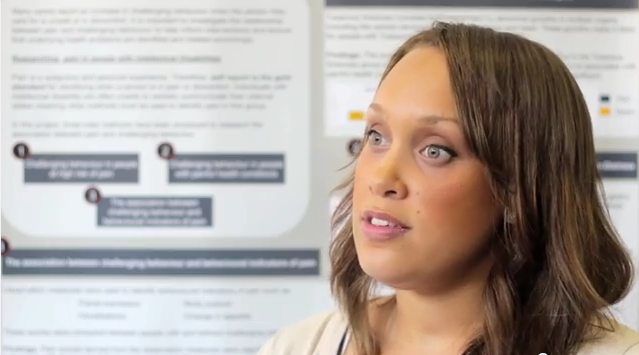Behaviours that Challenge in Williams Syndrome
Behaviours that challenge' is a phrase that refers to any behaviour that has a negative impact on a person’s well-being and/or leads to the exclusion from the community.
What are behaviours that challenge?
Behaviours that challenge are usually used to describe behaviours such as self-injury, aggression, shouting and screaming, although it can include other behaviours. It refers to behaviours that the majority of people find difficult to watch.
When we use the terms 'behaviours that challenge' we do not intend to imply that there is something about an individual that is inherently challenging.
The degree to which behaviour is perceived as challenging will depend on the environment and situation in which it occurs. It depends on the relationship between a person and their environment. You can read general background information about behaviours that challenge in our key topics area.
Behaviours that challenge in Williams syndrome
The majority of behavioural difficulties in people with Williams syndrome tend to relate to problems in attention and impulsivity.
There is little evidence for self-injury in Williams syndrome.
Several studies have examined aggression in Williams syndrome and a review of aggression is far less common in Williams syndrome (6-15%) compared to other syndromes such as Smith-Magenis, Prader-Willi and Angelman syndromes, who all have rates over 70%.
Are behaviours that challenge inevitable?
If you are a parent or carer of a person with Williams syndrome you might have arrived at this page with a sense of dread combined with worry about the sorts of behaviours that might be described. It is important to remember that behaviours that challenge are not inevitable in any child or adult with an intellectual disability and is certainly not inevitable in a child or adult who has Williams syndrome. If this is the first time you have visited this website you may wish to visit the welcome area first.
Some children and adults with Williams syndrome will show some behaviours that challenge but we now have a very good understanding of why these behaviours occur and what we can do. Sometimes people ask whether it is important to know about person's genetic syndrome when understanding behaviour and you can read about this here.
Behaviours that challenge are behaviours like any other behaviour and occurs for good reasons. Just like other behaviour it can be changed.
What should I do next?
In the following sections we have made information available to support people understand and reduce behaviours that challenge. At any point when parents and support workers are tackling behaviours that challenge it is important to seek advice. Behaviours that challenge can place substantial demands on personal resources. It is easy to feel overwhelmed by the behaviour because it is happening so frequently and because when it happens you feel helpless and unable to deal with the incidents.
At this stage it is important to notice that behaviours that challenge are there, that it is a cause of stress and that it is time to act. This does not need to be done straight away.
The best thing to do is to start to develop a plan of what needs to be done and how you are going to do this. We recommend that you do not try to act on your own. You need to build a team of people around you who you can trust and rely on and who have the right skills, whatever they may be, to help you take the right steps. In the following sections we have tried to indicate those professionals who might be able to offer the most available help and support at each stage.
NEXT: Risk markers for behaviours that challenge




